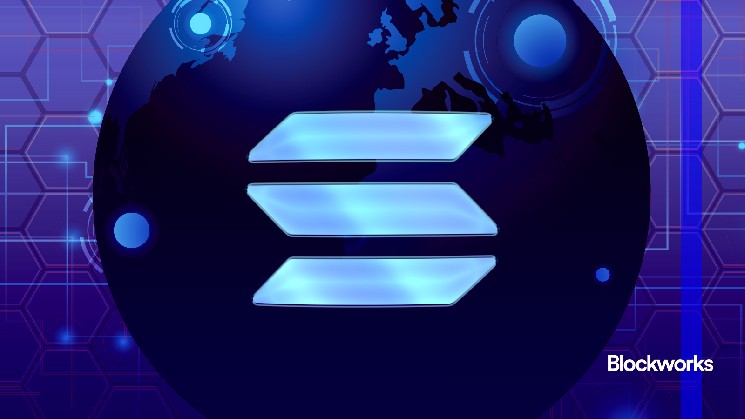This is a segment from the Lightspeed newsletter. To read full editions, subscribe.
This isn’t a promo piece. This is a totally normal weekly markets update that just so happens to include news of a sweeping transparency initiative that may reshape token due diligence forever, thanks to your friendly neighborhood content goblins at Blockworks.
Just so we’re all clear.
The week began with SOL in a minor rotation. We’re still off local highs, but prices remain steady within the $140-$150 range. Bitcoin similarly hodls around $104k, reasonably unfazed by geopolitical noise out of the Strait of Hormuz.
Though, if we’re reading tea leaves, crypto will likely remain range-bound until there’s clearer direction from the Fed or a decisive break in macro volatility.
Kamino v2 is now three weeks old. According to a recent report from Blockworks Research, it has pulled $230 million in new deposits, $90 million in fresh loans and turned looping PT-tokens into an institutional-grade yield strategy.
Jupiter volumes are cooling from memecoin fever highs but still dominate Solana’s DEX flow. Margin markets are consolidating. Drift now commands ~$923 million in deposits and ~$230 million in borrows, with growing integration between perps and lending. MarginFi, sidelined by earlier exits, is stirring again.
Maple and Apollo markets are open for business, offering exposure to real-world private credit through syrupUSDC and sACRED. Multiply strategies remain dominant, with SOL utilization north of 80% across major markets.
A problem that persists, though, is that when it comes to Solana’s most sophisticated DeFi strategies, so much of this activity remains difficult to track and trust. Underlying mechanics tend to be scattered across contracts, governance threads and backwater Discord channels.
Which brings us, in a very convincing segue, to Blockworks’ new Token Transparency Framework.
Launching this week, the framework introduces an open-source standard for token project disclosures. It establishes 18 weighted criteria across four categories, including project purpose, revenue sources, equity-token relationship, token allocation and vesting schedules, related-party transactions, market-making agreements and more.
Each project is scored out of 40 based on the completeness and materiality of its disclosures, with Blockworks acting as the first audit layer atop these self-reported filings.
Read the full article here

